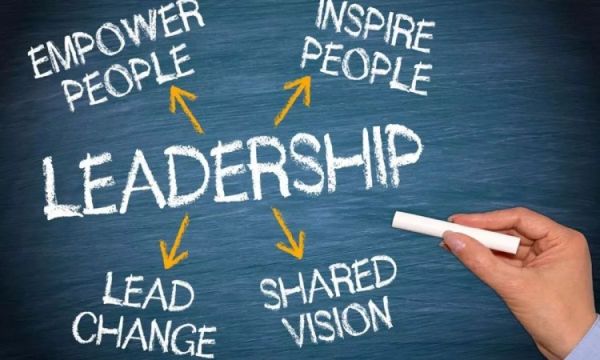
Maintaining a pleasant work culture, encouraging innovation, and increasing productivity all depend on effective leadership in the workplace. Influencing others, encouraging development, and fostering an atmosphere where staff members feel appreciated and inspired are all components of effective leadership, which goes beyond just having a management position. Strong leadership in a business is a result of a number of things, including encouraging collaboration and self-awareness.

Intelligence in Emotion (EI)
Strong leadership is built on emotional intelligence. It entails understanding one’s own feelings, identifying those of others, and using this understanding to successfully manage relationships. Emotionally intelligent leaders are better able to manage stress, settle disputes, and foster trust among their subordinates. They foster a helpful and upbeat work atmosphere by demonstrating empathy and understanding the viewpoints of others, which improves team engagement and performance.
Ongoing education and training
Leaders that are effective are always learning. They are aware that stagnation might be harmful to their performance in the ever-evolving corporate environment. Leaders may keep up with the newest developments and trends by fostering a culture of ongoing learning for both themselves and their staff. Leaders need to be flexible and receptive to new ideas, whether that is achieved via formal schooling, mentoring programs, or experience-based learning. This aids in their decision-making and motivates their group to advance their careers.
Effective communication
Effective and straightforward communication is one of the most important abilities for every leader. Giving directions is just one aspect of communication; other aspects include establishing clear expectations, offering criticism, and fostering an environment that is conducive to discussion. The organization’s vision and goals, as well as how each member of the team contributes to the attainment of these goals, must be understood by the team. Employees are more likely to remain inspired and dedicated to the team’s success when they feel heard and educated.
The ability to make decisions
Leaders often have to make tough choices that affect both their group and the whole company. Making deliberate, well-informed judgments under duress is a sign of strong leadership. Leaders should be capable of balancing the advantages and disadvantages of various solutions, taking into consideration the possible effects on staff, and accepting responsibility for the results. In order to promote cooperation and guarantee that all viewpoints are taken into account, effective decision-making also necessitates, when appropriate, including the team in talks.
Increasing credibility and trust
The foundation of leadership is trust. Employees may be hesitant to accept or follow their leader’s efforts if they don’t trust them. By acting with consistency, dependability, and transparency, leaders foster confidence. This entails accepting accountability for their errors, keeping their word, and upholding moral principles. Credibility is also correlated with a leader’s proficiency and capacity to lead the group to achievement. Leaders may gain the respect and allegiance of their staff by acting competently and fairly.
Developing and empowering others
Effective leaders understand that their own performance is correlated with that of their team. Giving workers freedom and chances to take charge of projects increases their self-esteem and encourages innovation. In addition to creating a solid support system, leaders who teach and mentor their team members also help them advance professionally. This leadership approach, also known as servant leadership, is centered on helping people grow and building a more motivated and effective team.
Flexibility and adaptability
In the fast-paced workplace of today, flexibility is essential. When conditions shift—whether as a result of internal difficulties, market factors, or technical breakthroughs—leaders must be prepared to alter course. Being adaptable enables leaders to confidently guide their people through change and negotiate uncertainty. A flexible leader fosters resilience in the group, enabling them to stay concentrated and effective even during times of change.
Strong decision-making abilities, good communication, ongoing learning, and emotional intelligence are all necessary for developing leadership in the workplace. Effective leadership also requires flexibility, trust, and an emphasis on empowering people. By fostering these traits, leaders may create a productive workplace that inspires workers, fosters creativity, and eventually helps the company succeed.